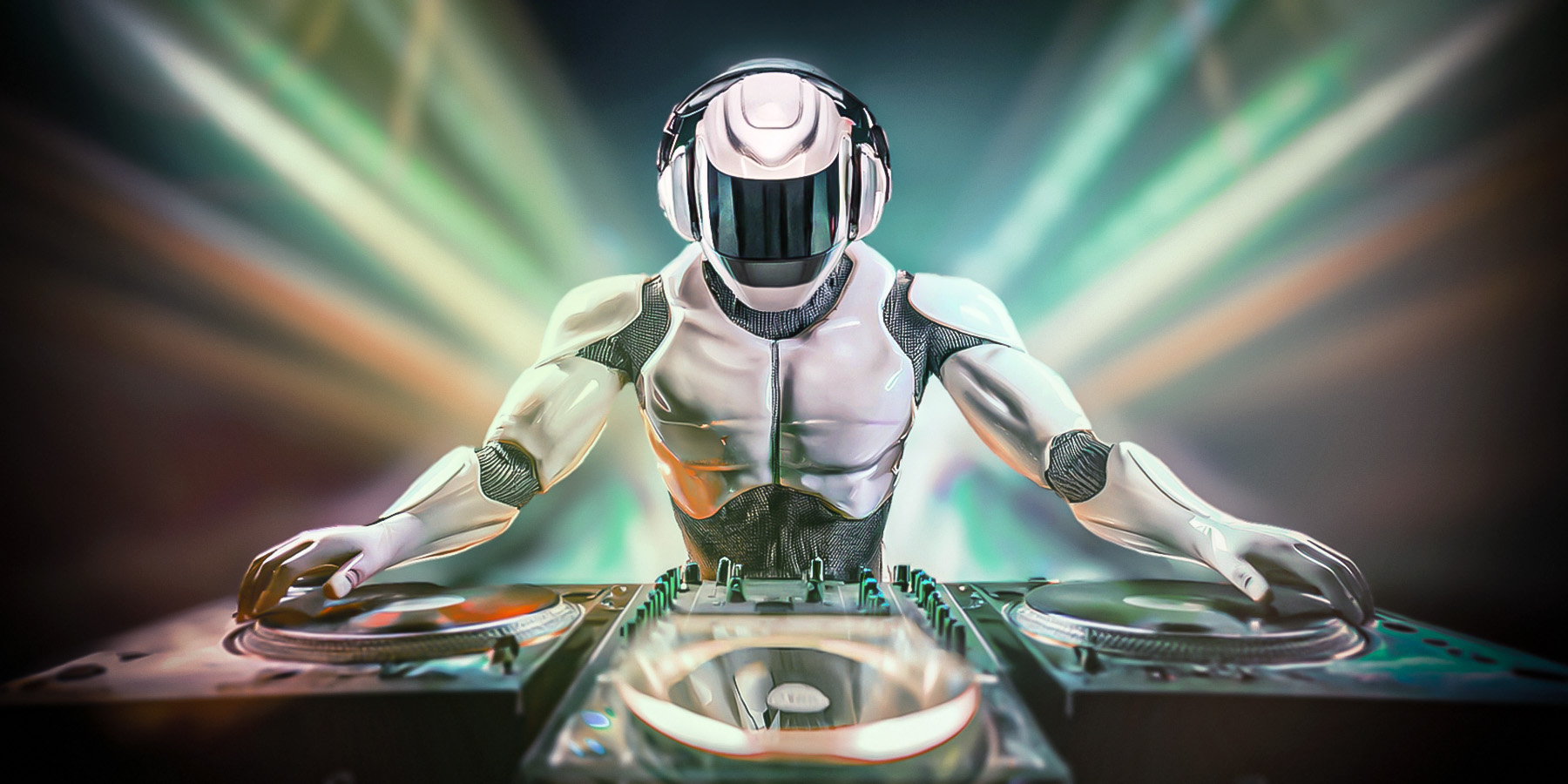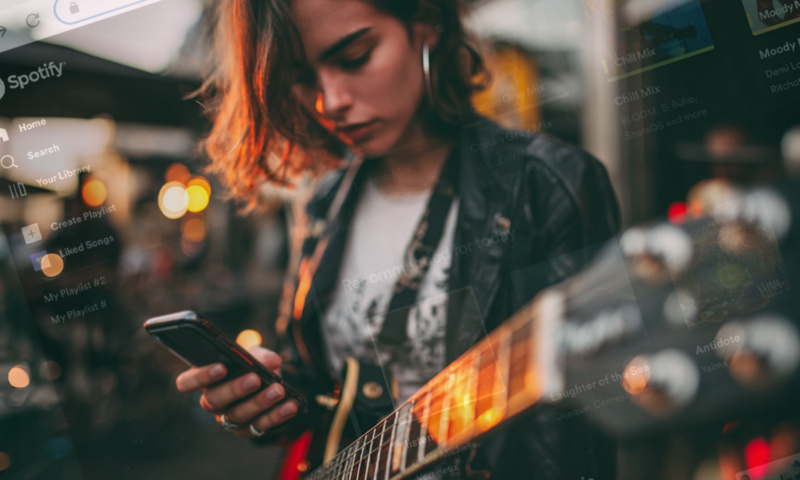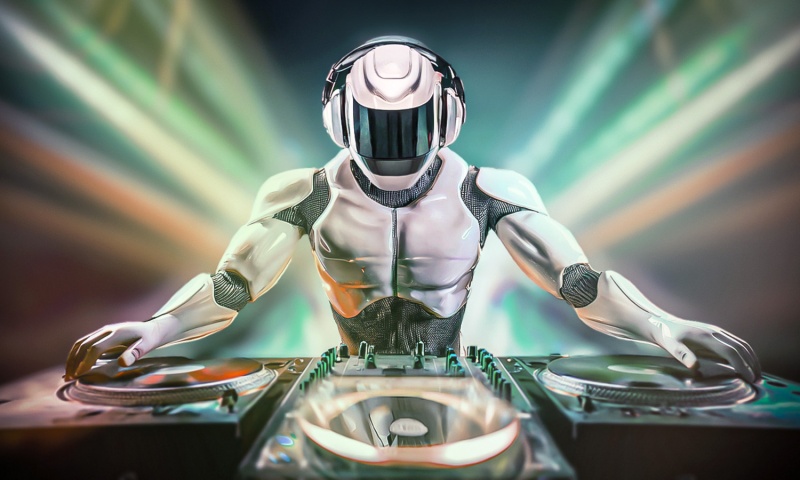AI Blues
Guest blogger 03.12.2024

If there’s a loaded gun lying in the middle of the marketplace, there’s no need to worry. Numerous people have already lectured on the responsible use of firearms. Alright, maybe. Someone will pick it up and rob a bank to get the money that others have worked so hard for.
Does the metaphor fit? Or is it too extreme? Someone will use AI to create much more content than ordinary mortals are capable of. And in only a fraction of the time. Just recently, someone told me about a friend who cranks out two hit songs a day with AI.
We won’t be able to stop this entirely— not even the industry, which has proposed measures such as upload filters and compensation for the original voices. Just give me a moment to comment on a few of these myths. Perhaps it will get a few people to think about it. If I’m wrong, I’d actually be delighted.
AI is just there to support the work flow
Maybe we both still have enough pride to stick to just finding rhymes. But someone will perform like a multi-instrumental genius and outshine us. And then people will say, “Hey, look at that as an example. Amazing!” And at least they’ll be able to keep up appearances long enough to make a decent living.
AI cannot replace real human emotions
That’s true. But who cares? When I accidentally turn on a typical format radio station with afternoon giveaways, I barely hear music played with real instruments—at least not during the daytime. And the songs are often edited to the point of inhumanity. And to be honest, before I started making music, I also mistook a drum machine for a real drum set. It took me a long time to figure out that Doctor Avalanche was a classic drum machine. In many cases, we already have to measure our acoustic music productions against the sound quality of virtual instruments.
AI generated music is risky in terms of copyright infringements
Artificial intelligence “composes” just like we do—it reassembles what we have heard before. Two notes from one song, three from another, combined with the rhythm of other pieces of music—and at some point you will no longer be able to recognize what it has used. And where there is no plaintiff, there is no judge. Do you think you’d even notice if someone borrowed an idea from you? Is there a database with all previously published recordings that is automatically compared on a regular basis?
AI is recognized by upload filters
Some digital distributors are working on filters that are supposed to recognize AI generated music recordings in order to reject such titles. This may work with some songs that are one hundred percent artificially generated. But what if only the foundation is artificial and the rest was added manually? Or if AI spits out the finished song and the “musician” has recreated it themselves?
AI generated music can’t be played live…
… because many creators can’t play an instrument at all. So what? Even today, DJs are for many the cheaper alternative with fewer logistics and personnel. And if people are already chasing after AI-created models and booking them for jobs, they’ll soon be attending hologram shows and enthusiastically cheering for them. Oh wait, doesn’t that already exist in East Asia?
There is compensation for faked original voices
Laws are gradually being passed to protect the rights to one’s own voice (“ELVIS Act”). But how low will the compensation be for those who gave up their vote voluntarily or involuntarily? This would also require a database of votes, which would, in turn, be compared and reliably identified despite all the showmanship. Can it also be identified if someone has superimposed several voices—as with a synthesizer? Once again the question arises: Would you notice—let alone recognize—if your voice suddenly sang someone else’s song? Definitely not if a songwriter simply hijacked it to get a better voice for their demo (while you’re still paying a real singer to do it).
I myself am not afraid of artificially generated music. However, I have my reservations if many “musicians” use them to their full extent and their customers eventually accept them. I won’t be able to keep up with the pace of production, and artificial mass production certainly won’t drive up the price of the final product.
The Recording Industry Association of America (RIAA) is currently suing the AI music generators Suno and Udio for copyright infringement (June/July 2024). After all, their AI has been trained with the help of the music catalog of the labels represented by the RIAA and therefore constantly retrieves elements of the songs contained therein in order to reassemble them. According to the definition, the RIAA is probably right here. GEMA was also the first collecting society worldwide to file a lawsuit against OpenAI for copyright infringement.
Sorry if I’ve ruined your day. Perhaps we can still find ways to adapt and thrive




